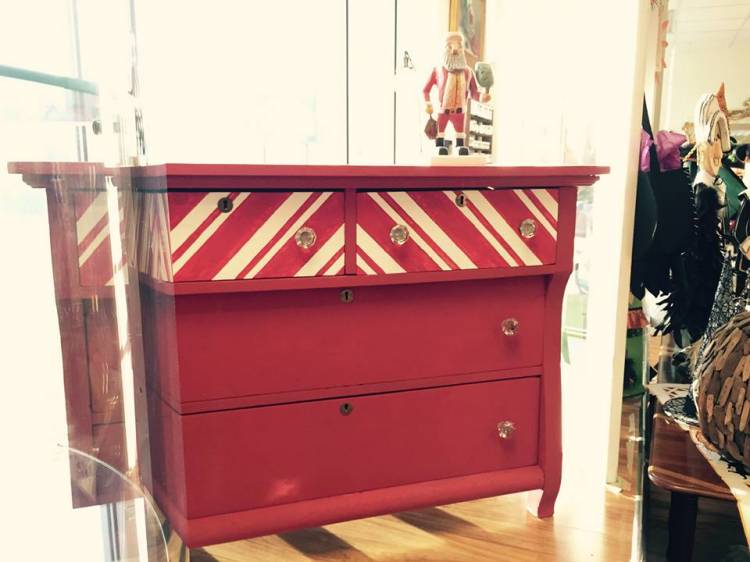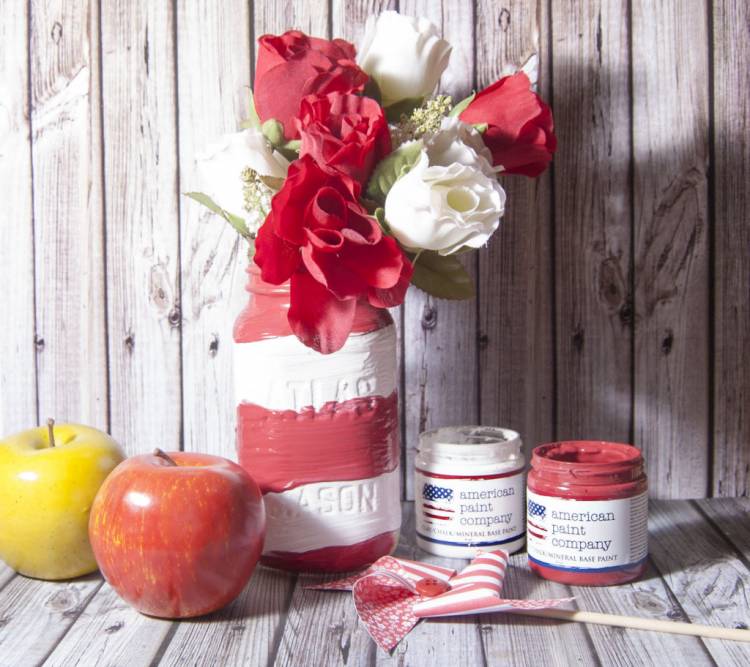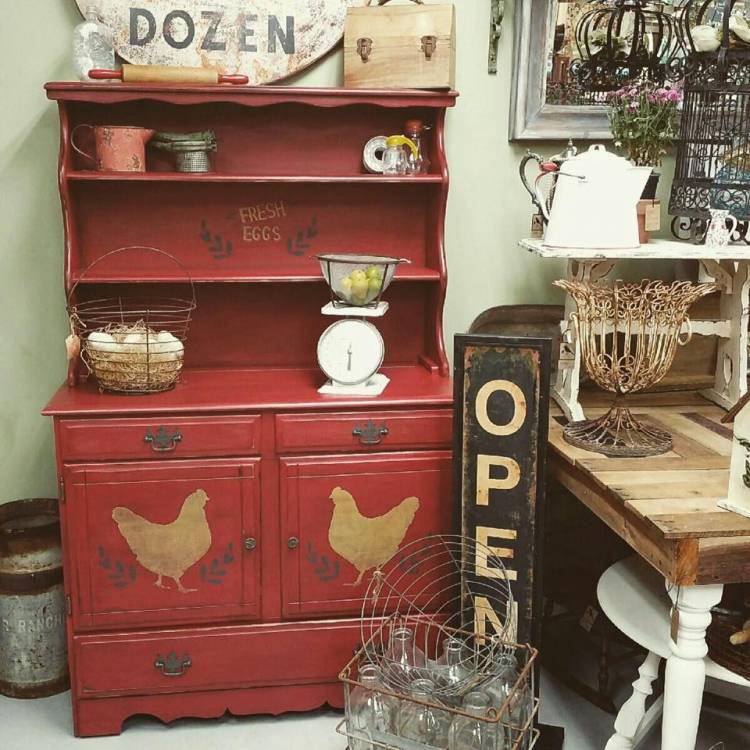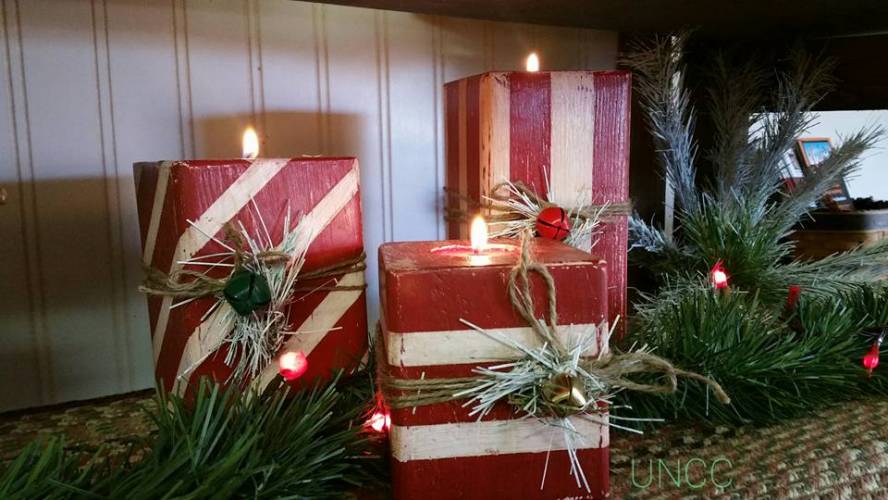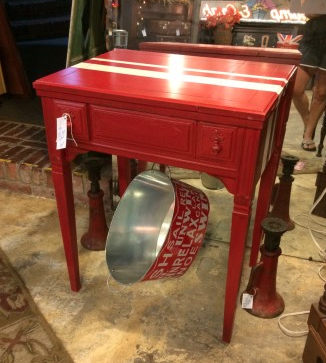Q – How do I care for my finished painted furniture?
A – If you have waxed, simply dust with a soft cloth. You may even add a small amount of APC clear wax onto a dusting cloth to buff out any surface scratches. If the piece was finished with Top Coat, dusting with a damp cloth is acceptable. Avoid scrubby sponges and magic erasers, as it will scratch or remove your finish. Continue to think of your finished piece as fine furniture and use place mats and table cloths as needed.
Q – What kind of brush should I use for the paint? What kind for the wax?
A – Brushes are a personal preference, but if you are looking for a smoother finish a synthetic brush is best and if you would like more texture, use a natural bristle brush. With the wax, a wax brush is always best as long as it is a lightweight one. Heavy wax brushes tend to over apply the product and ‘scrub’ too hard.
Q – Can I use other sealers like polyurethane on this paint?
A – Yes you can.
Q – How long does it take to dry? How long should I wait before waxing after painting?
A – It depends on the weather, but mostly the paint will dry within 2 hours, but sometimes much quicker. Actually, APC paint makes “watching paint dry” fast and fun!
Q – How do I know which finish to use? How many coats will it need?
A – It depends on what you are doing and the look you would like to achieve. Top Coat (3 coats for maximum protection) will give you a finish that is washable with a slightly damp rag and wax is more of a fine furniture finish.
Q – How is this different from latex paint?
A – Latex paint is made of synthetic materials where as APC paints are all natural chalk, clays and minerals, creating the most beautiful finishes. APC also won’t peel and chip like latex, and easily distresses for that time worn hand finish.
Q – Can I repaint over a previously waxed piece?
A – It is best to remove the wax with denatured alcohol before repainting. For small areas, lightly sand to remove the wax and repaint.
Q – How do I prep my piece before painting?
A – It is always important with any project to clean your piece properly. For best results, use APC cleaner or a natural cleaner like Simple Green or TSP. If you know your vintage piece has lived a ‘full life’ and may possibly have discolorations and damage, sometimes it’s nice to let that history come through and be part of the finished piece. Discolorations may happen and bleed through the paint, but you can embrace those by adding extra texture and brush strokes with the paint, distressing the edges and then wax to highlight the wonderful imperfections that make old furniture so interesting.
Q – Do I need to sand or prime?
A – In most cases, no. However, if you are painting something shiny, for best adhesion, light sanding would be recommended. If you have a piece that is particularly damaged and you know there could be discolorations that would seep through and you are looking for a more pristine finish, then priming would be recommended as well.
Q – Can I top coat over wax?
A – No. Think alphabetically, you can TOP COAT first and then WAX. Not the other way around.
Q – Are the paint and finishes water resistant? Can I put them outdoors?
A – The Top Coat (with 3 coats for maximum protection) will resist water but is not water repellant. The paint and the wax are natural products that would absorb water, so the Top Coat is best for outdoors.
Q – The paint is very thick. Can I thin it?
A – Yes! But it is always best to pour the paint into a container and then add water as to not contaminate the contents of the can.
Q – Can the colors be mixed?
A – Absolutely! Although APC offers 30 beautiful colors and 12 limited edition colors, you can increase the pallet by mixing colors together for a new hue or using Uncle Sam or Home Plate to lighten the tint of color. Also try using a gray like Smoke Signal to create a darker shade of a color.
Q – What is the shelf life of the products?
A – The paint and the wax have a shelf life of a year. The Top Coat is 6 months.
Q – I want to use grit but I’m using top coat. Do I wax after top coat so I can apply the grit?
A – Yes! The grit will stick to the wax better so if you Top Coat you can then wax to apply American Grit.
[print friendly]
